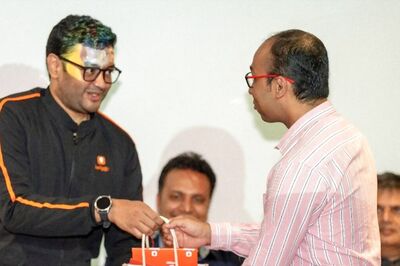
views
PUDUCHERRY: Factor concentrates, which clots blood in hemophiliac patients, is unavailable in government hospitals in the outlying regions of Karaikal, Mahe and Yanam, though it is available now in JIPMER and Indira Gandhi Government Hospital and Post Graduate Institute in Puducherry region.As the medication is very expensive, there is a need for government hospitals to stock the factor concentrates pointed out Dr P Nalini, President, Hemophilia Society, Puducherry Chapter. Statistics show that more than 75 per cent of the hemophiliac population in India cannot even afford treatment.Hemophilia is a genetic, life-threatening bleeding disorder where blood does not clot normally due to deficiency or absence of clotting proteins called factors. Persons with Hemophilia (PwH) tend to bleed internally and externally even from a minor injury. It is primarily treated by replacing the absent or abnormal clotting factors to prevent severe blood loss and complications from bleeding by injecting a clotting factor replacement into the veins. Factor VIII concentrates treat hemophilia A, and factor IX concentrates treat hemophilia B. Recurrent and prolonged bleeding in joints and muscles often leads to permanent disability. However, those disabled by hemophilia are not recognised as disabled and are therefore not entitled to any benefits. Efforts must be made to include hemophilia under the Persons with Disability Act 1995 and the National Health Mission, Dr Nalini said.She also said that schools shy away from admitting children with hemophilia. “Since these children often miss classes, private schools prefer not to give them admission,” Dr Nalini said. Hemophiliac adults even struggle to get employment and a source for livelihood is a major problem, she added.Many hemophiliac patients refuse to come out and register with the Hemophilia Society. In Puducherry, currently only 80 people are registered even though the actual number is four times larger, said Dr Nalini.As the diease is hereditary it is important to detect women who are carriers of the gene. The Hemophilia Society is trying to identify such women. When these carriers are pregnant, they are sent to CMC, Vellore so that the fetus can be tested. Porionic Villous biopsy detects if the fetus is carrying the gene. If positive, the parent is advised to abort the fetus, said Dr Nalini. However, there is a lot of stigma in identifying women carriers as they find it difficult to find suitors.




















Comments
0 comment